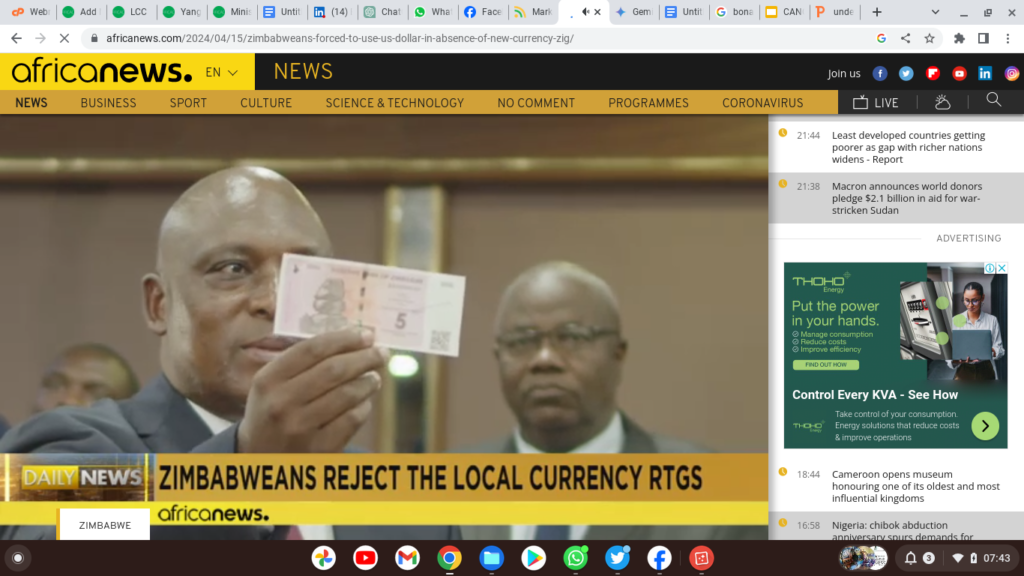Zimbabwe’s Informal Market Rejects New Currency, Defaults to US Dollar
Uncertainty plagues Zimbabwe’s economic landscape as the informal sector, a critical driver of the nation’s economy, refuses to accept the local RTGS dollar. This comes amidst the delayed launch of the new gold-backed currency, ZiG, originally planned for April 8th but now postponed until April 30th.
Zimbabwe’s informal traders, representing an estimated 75% of national employment, have stopped accepting the RTGS dollar due to concerns about its declining value. This leaves the US dollar as the dominant currency in the market.
Economist Happy Zengeni criticizes the implementation of the new currency. “New measures should inspire stability and lower inflation,” he explains. “Discipline and sincerity are crucial throughout the process. Ordinary citizens lack the means to inject liquidity; that responsibility lies with the authorities who need to be transparent.”
Prior to the ZiG announcement, the exchange rate stood at 28,720 RTGS dollars to 1 US dollar. Everyday people, like street vendor Mildred Mapfumo, express their despair. “I rely on selling fruits to pay for my children’s education,” she says. “I saved RTGS dollars, but now they’re worthless. I have no idea how I’ll manage.”
Zimbabwe has a history of volatile currency. The RTGS dollar, soon to be phased out, followed the bearer cheques. Citizens remain deeply concerned about the ability of the new ZiG currency to curb the nation’s rampant inflation.
With the informal market, a pillar of the Zimbabwean economy, rejecting the RTGS dollar and the delayed launch of the ZiG, the country’s economic future remains uncertain. Only time will tell if the ZiG can restore stability and confidence in Zimbabwe’s financial system.
Additional source: AfricaNews



